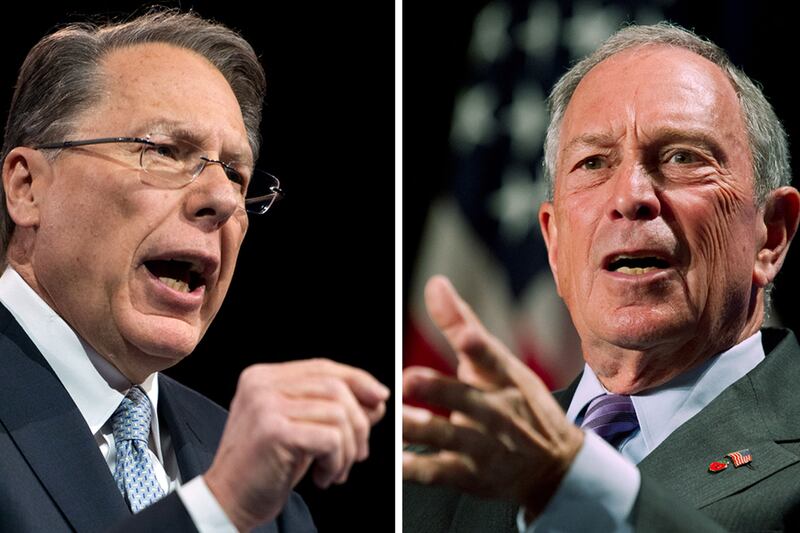Four months and three days after the Newtown massacre, the bipartisan Toomey-Manchin bill that would have expanded background checks online and at gun shows was rejected in the Senate by a vote of 54-46.

And bans on assault weapons and high-capacity magazines were defeated easily just an hour later, making Wednesday a devastating day for gun-control advocates, who are just beginning to exert influence after decades of trying and failing to mobilize voters around any significant reform. But leaders of major gun-control groups say they have made headway in competing with the previously unquestioned influence of the NRA in a way that might have been unimaginable even a few months ago.
“It’s been a zero-sum game for the last 20 or 30 years,” says Mark Glaze, director of Mayors Against Illegal Guns (MAIG), Bloomberg’s well-funded gun control super PAC. “Most politicians have made the easy decision to care about something else.”
The National Rifle Association had opposed the Toomey-Manchin bill since its creation and lauded the bill’s defeat on Wednesday. The organization had encouraged its members to sign petitions against the bill and call their senators to express their thoughts on the bill. The NRA also spent $500,000 on an online ad claiming that law enforcement disagrees that stricter background checks will have a significant impact on violence.
Despite Wednesday’s defeat, Mayors Against Illegal Guns is undaunted, pushing ahead with an effort to copy the NRA’s trademark: grading politicians based on their receptivity to “commonsense gun” laws rather than adherence to the Second Amendment.
While an A rating from the NRA has long been a point of pride for politicians, MAIG is hoping its grades soon will carry the same weight to ensure votes and donations.
The Mayors Against Illegal Guns Scorecard will incorporate the voting records, bill co-sponsorships, and public statements of members of Congress to determine a letter grade, NRA-style. MAIG will look at politicians’ stances on high-capacity magazines, background checks, and state authority to establish standards for concealed carry.
A spokesman for the NRA did not respond to multiple requests for comment about how the NRA grades members of Congress.
Glaze says major Democratic donors like Kenneth Lerer, chairman of BuzzFeed, and venture capitalist Fred Wilson can look to the scorecard to determine which politicians are most amenable to reform and therefore deserving of campaign contributions. The Washington Post recently reported that big Democratic donors may withhold campaign funds based on politicians’ failure to support gun control.
“The scorecard is designed to give them a clear sense of where members of Congress stand,” Glaze says. “You will see mega-donors and friends giving some Democrats the cold shoulder now.”
The symbolism of a gun-control group grading members of Congress for the first time is a display of power in itself, Glaze says.
“We are turning around a status quo that is deeply entrenched,” he says.
Of about 100 million gun owners in the nation, Glaze says, citing statistics from MAIG, 4 million or 5 million are NRA members. The NRA does not share its membership numbers publicly.
Since MAIG launched its grassroots campaign, Demand a Plan, in the wake of the Aurora movie theater massacre this summer, 1.5 million people have pledged their support.






